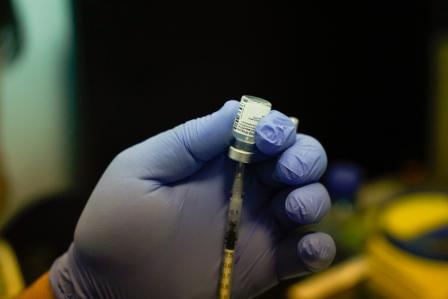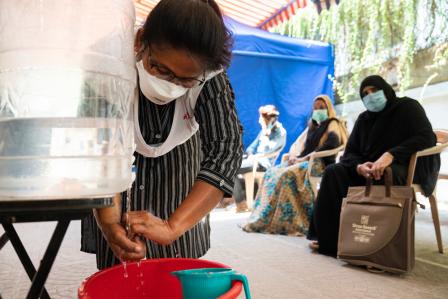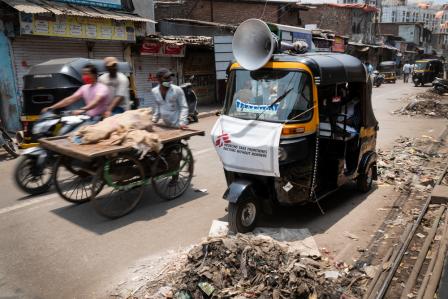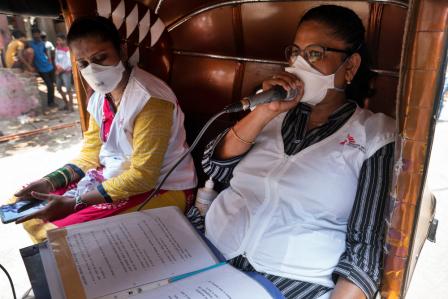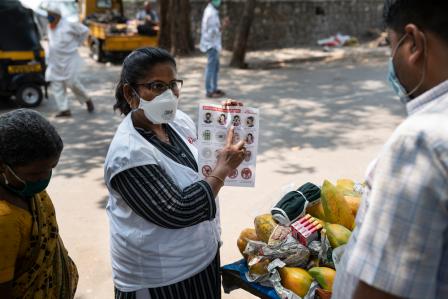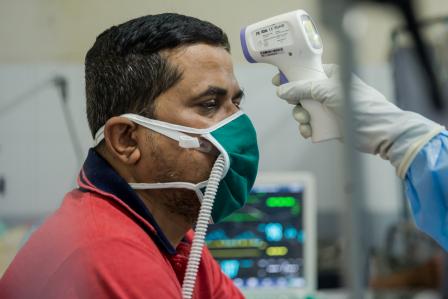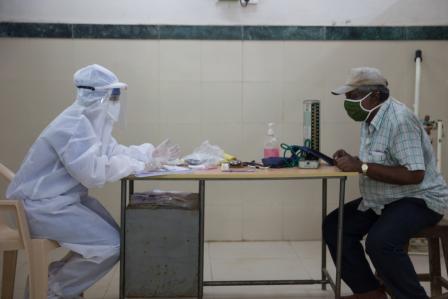COVID-19 in India: "We're working to protect our community"
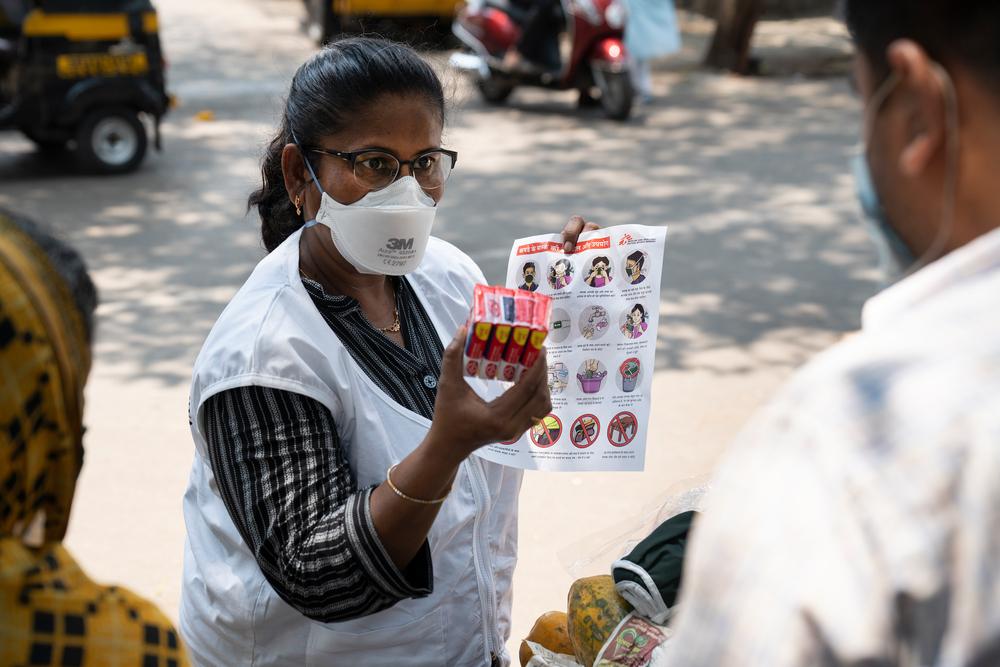
MSF’s Health Educator distributing soaps to a street- hawker in M-East Ward, Mumbai. © Premananda Hessenkamp
Mumbai is still seeing more than 3,000 new cases of COVID-19 every day. People are scared and many of them prefer not to get tested even though they have symptoms. They’re afraid of being quarantined or hospitalised and separated from their family members. Here, Doctors Without Borders/Médecins Sans Frontières (MSF) is working in the M-East Ward, a densely populated area of the city that has 70 percent of its population living in slums. It also stands lowest on human development index.
COVID-19 and the community
I manage a team of 10 health promoters and we’re expecting to be joined by 10-12 more very soon. The team is tasked with raising awareness about the virus within the community in different ways:
Community health workers travel through the narrow lanes of the informal settlements on tuk-tuks, delivering COVID-19 prevention messages through loud speakers and sharing information on the services available.
We conduct handwashing demonstrations sessions and meetings throughout the community with people who live in the slums, patients waiting in public and private healthcare centres, private sector doctors and healthcare workers.
We also reinforce the messages about wearing masks, social distancing and other ways COVID-19 can be prevented.
However, it’s hard when five or six people live together in small houses that might only be a few metres wide, but we request that they wear masks and observe social distancing in the lanes and markets. Anyone with symptoms is linked to the nearest testing centre and asked to wear a mask at home and isolate if possible.
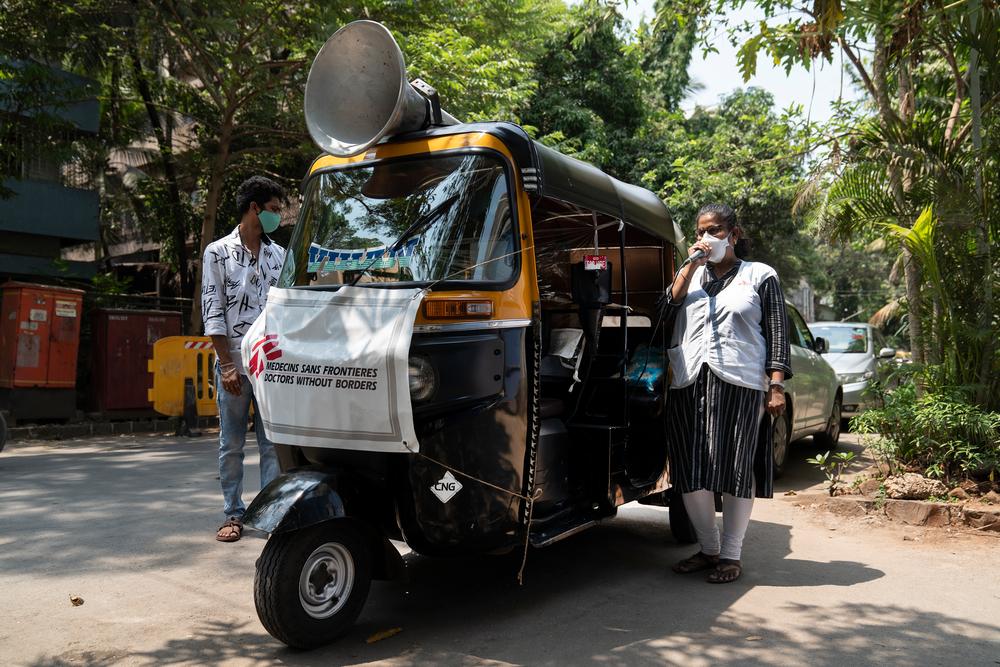
Shagufta Sayyed, Health Educator making public announcement on COVID-19 during mass awareness campaign at Industrial pocket in M-East Ward, Mumbai. © Premananda Hessenkamp
Digital health promotion
We’ve been doing health promotion work in the community continuously since June 2020.
When there were fewer cases in December and January, people were more likely to ignore the messaging – but now many more people are wearing masks
We’re also doing digital health promotion reaching thousands of people on Facebook with videos and messaging, especially the younger generation as they are so active social media
Protecting the vulnerable
Another important part of our work is helping protect particularly vulnerable people; patients with drug-resistant TB (tuberculosis), HIV, those with diabetes or hypertension and the elderly.
We’re carrying out an intervention know as “shielding” and we aim to reach more than 5,000 families, providing them with hygiene kits including masks, soaps, hand sanitisers and floor cleaner to help them protect themselves.
We stay in contact with them on a weekly basis by phone, providing regular health information, advice and counselling.
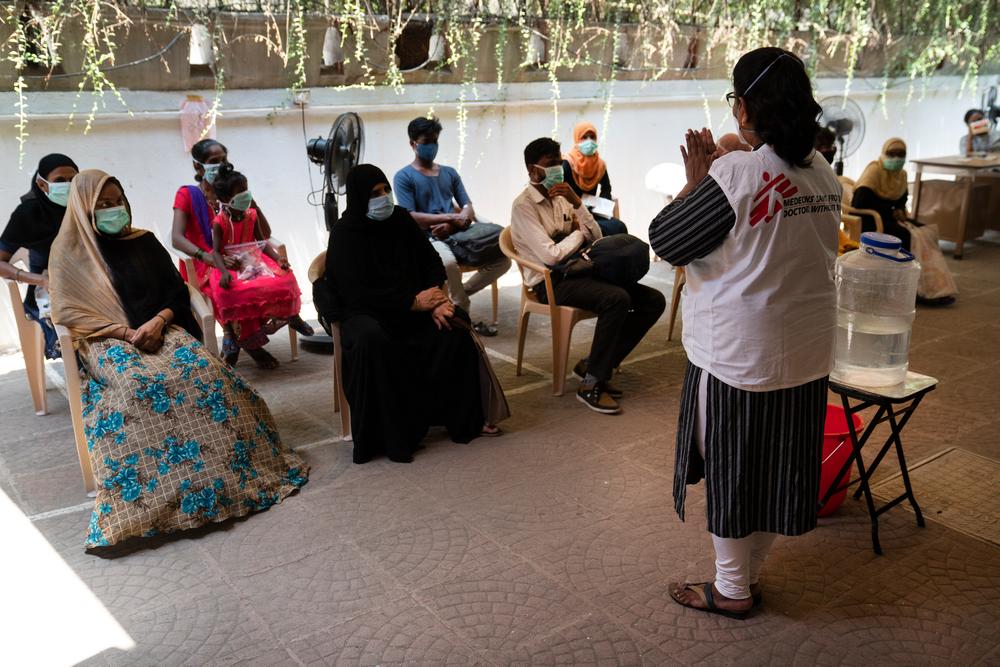
Shagufta Sayyed, Community Health Educator demonstrating Handwashing steps to patients with DRTB at the MSF’s independent clinic in Mumbai, India. © Premananda Hessenkamp
Determination
The team are working really hard. To begin with some staff had concerns, but we’ve done a lot of safety training and we also provide mental health support.
We’re all part of this community and are really motivated to help as much as we can. But, we need more people and more organisations doing health promotion to promote COVID-19 safe behaviour and testing.
